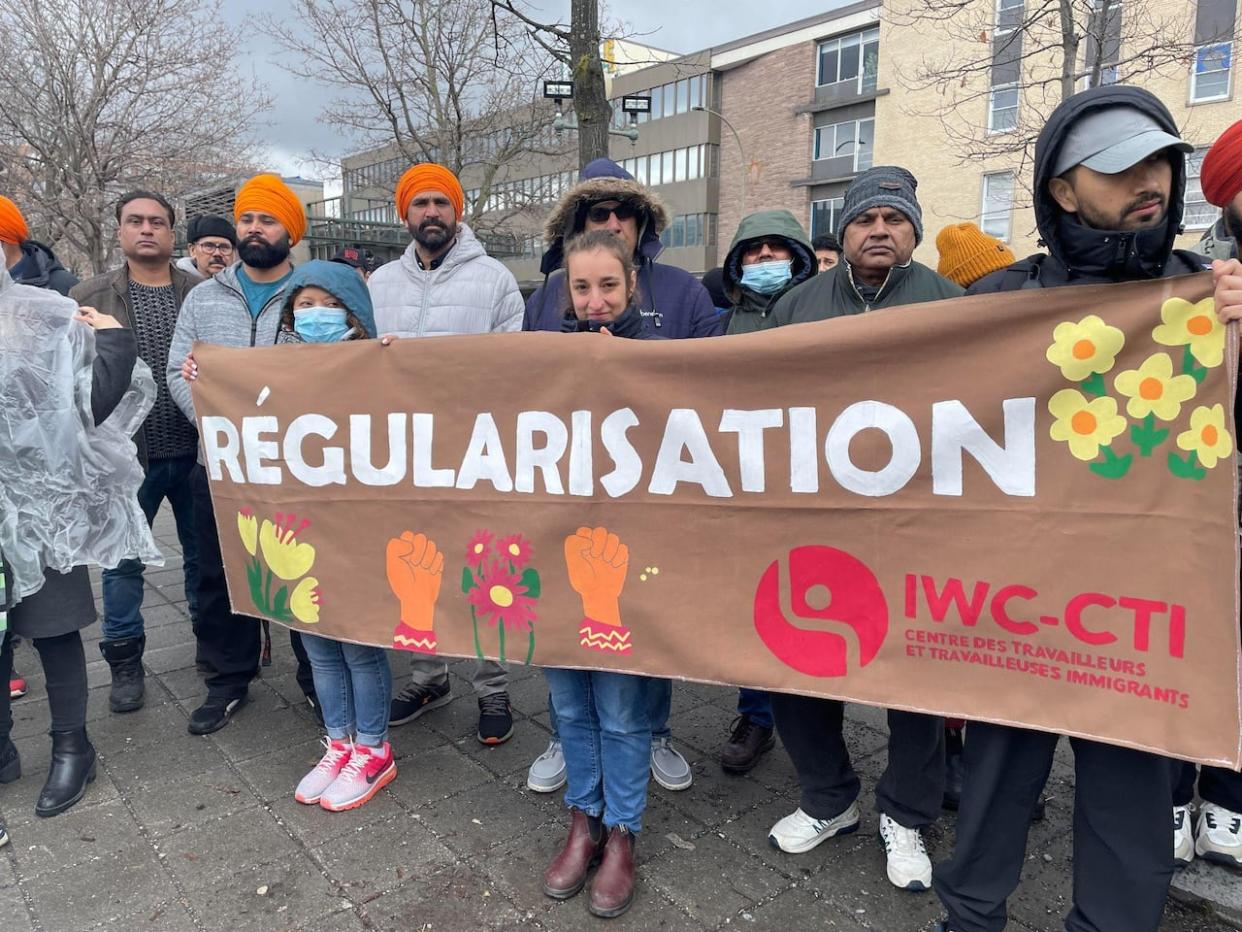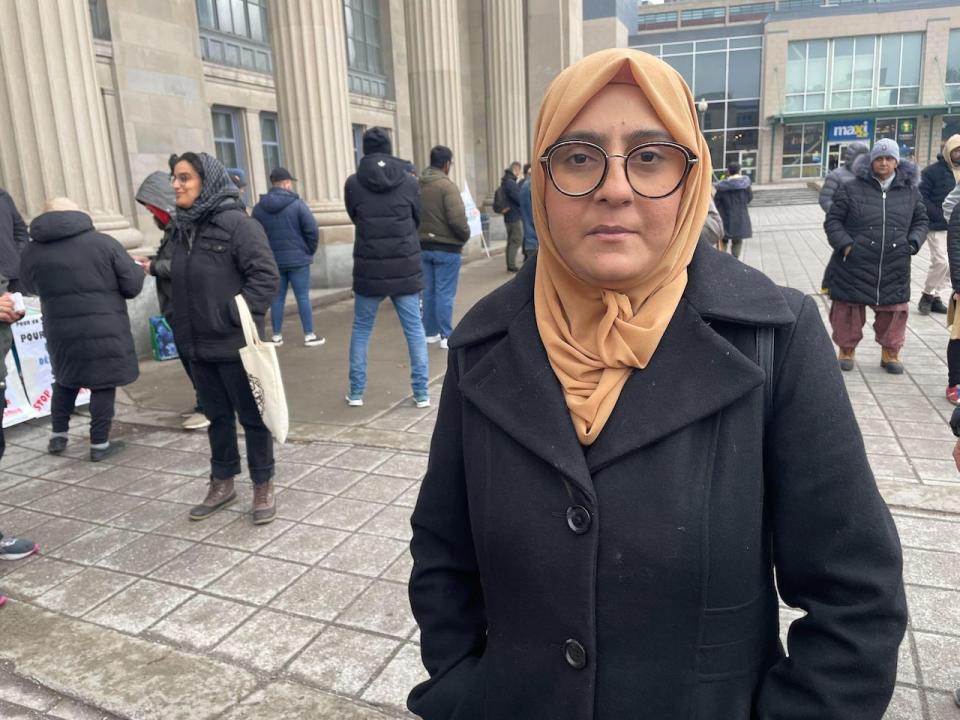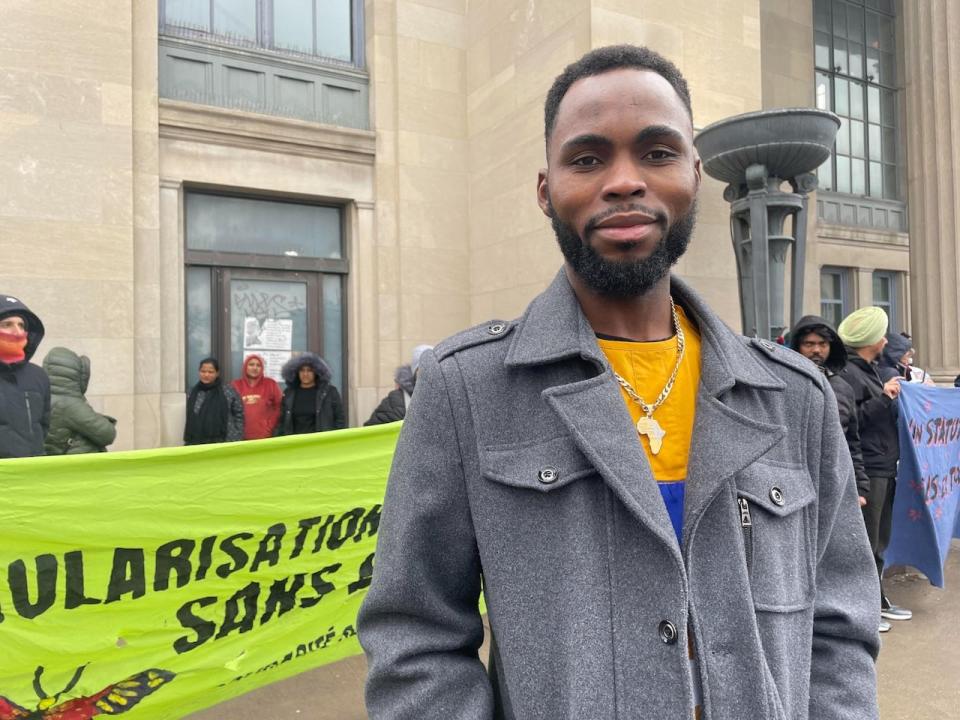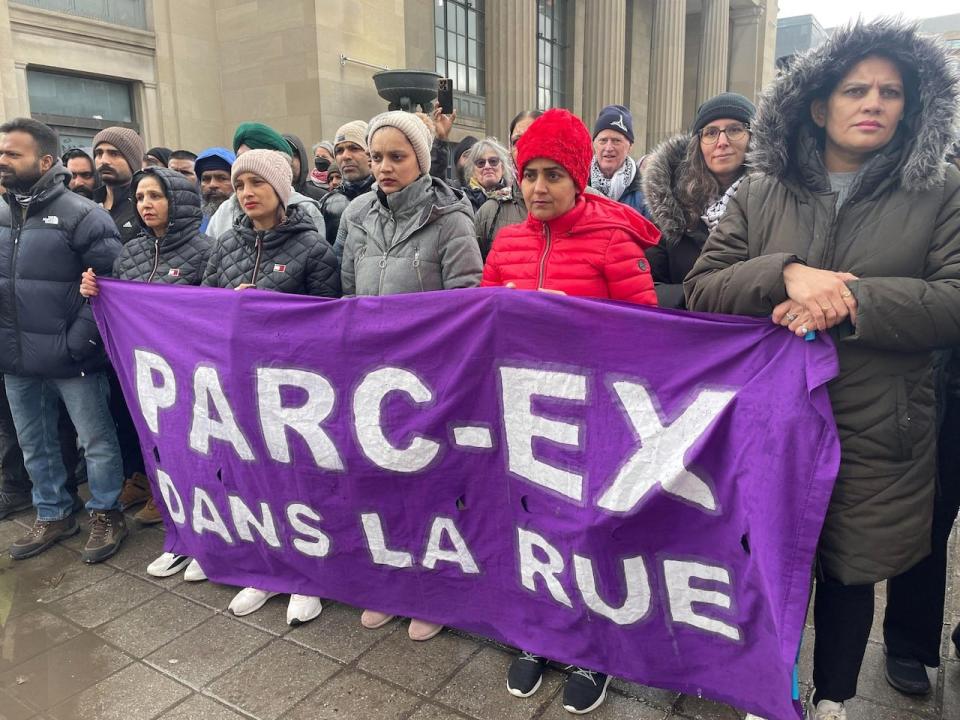'Migrant Spring' protesters demand regularization for undocumented people

Demonstrators gathered in Montreal's Parc-Extension neighbourhood Saturday to demand the federal government grant permanent residency status for all undocumented people living in Canada.
Similar protests took place across the country as part of what's been called the "Migrant Spring."
Protesters called on Immigration Minister Marc Miller to create a program to regularize the status of migrants, end deportations and immigration detention.
In December Miller said he was preparing a program that would allow many undocumented people to apply for permanent residency — but the protesters say they don't want anyone left out.
One of Saturday's protesters, Shahista Hussein, says many in Parc-Extension are struggling.
Undocumented people fear going outside, being seen by the police and getting deported, said Hussein, who works as a councillor at Bureau d'information de Parc-Extension, an organization that connects residents with resources and professional development based in the community.
The goal of the protest, she said, is to put pressure on the government.

Shahista Hussein, councillor at Bureau d'information de Parc-Extension, says people without status have nowhere to go. (Sharon Yonan-Renold/CBC)
Quebec Premier François Legault has said the province has surpassed its ability to take in more asylum seekers, saying the arrival of more migrants also "poses a real problem for the future of French in Quebec."
Legault has asked Ottawa for full control over immigration to the province, a request that was turned down yesterday.
But Hussein said leaders need to be chipping in to help and working together, instead of turning people away.
"Where will they go? They're already here. They have nothing. We receive clients every day who have no food, no papers, no housing. They are sleeping in the street," she said.
Gaurav Sharma, a community organizer at the Immigrant Workers Centre, appealed to Legault and Prime Minister Justin Trudeau to give all undocumented people what he called a chance to contribute to Canadian society,
While he understands taking in people from other countries is expensive, and that it takes time for newcomers to learn the French language, Sharma said it's an investment worth making.
"We are requesting the government [to] give us a chance," he said.

'Everything is difficult in this country without status,' says Yonnel Destin, who works with Solidarity Across Borders. (Sharon Yonan-Renold/CBC)
'Open the door for everybody'
Originally from Congo, Yonnel Destin came to Canada via Roxham Road — the irregular border crossing that the federal government closed in March 2023.
Now a permanent resident through his wife's sponsorship, Destin said he knows the hardship of being a refugee and fleeing one's home country.
"If you don't have status here, you can't work, you can't go to the hospital," said Destin, who works with the group Solidarity Across Borders.
"Everything is difficult in this country without status."
Destin said it took him four years to get status, and he wants other migrants like him to become regularized so they can stay in Canada.
"They have to open the door for everybody," he said.
CBC has reached out to both Canada and Quebec's immigration ministers for comment, but neither has responded.

Protests took place across Canada on Saturday as part of what's being called the “Migrant Spring.” (Sharon Yonan-Renold/CBC)


